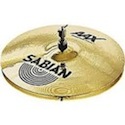|
e: apparently too stupid of a question for this group.
Video Nasty fucked around with this message at 14:28 on Sep 19, 2017 |
|
|
|

|
| # ? May 16, 2024 16:00 |
|
mystes posted:Isn't TypeScript pretty clearly winning? Why use Flow now? That's why I'm asking.... Flow is baked into create-react-app so ease of use is there, but having never used either, I wonder what the advantages of typescript over flow are.
|
|
|
|
Off the top of my head, reasons to use TypeScript instead of Flow: 1. TypeScript tooling support is way ahead of the Flow situation. IDEs, linters, etc... 2. Way larger TS community meaning more examples, help, books, etc 3. When it comes to available and well-maintained types for third-party libraries, TypeScript is ahead. (This is a big one IMO) 4. Related to the previous point, third-party libraries are way more likely to include type definitions for TS than for Flow. 5. TypeScript supports more advanced generic typing. 6. TS has better error messages helping you pinpoint where you hosed up. Thermopyle fucked around with this message at 14:41 on Sep 18, 2017 |
|
|
|
Lumpy posted:That's why I'm asking.... Current flow user probably migrating to TS at some point in near future mainly due to 1-4 above in Thermo's list E:which kind of sucks cus I really like flow
|
|
|
|
I'm trying to add a large number of entries to pouchdb. Adding each doc is asynchronous and I started by tryingcode:Edit1: It's taking like 5 minutes to add everything which makes me feel like it's a horrible approach Edit2: Going to try a batch call thanks to my friend's suggestion awesomeolion fucked around with this message at 16:53 on Sep 18, 2017 |
|
|
|
Lumpy posted:That's why I'm asking.... Not sure if you're aware of this (I only found out about this a few weeks ago), but you can start a create-react-app with TypeScript using the following command: code:
|
|
|
|
Apparently CoffeeScript refused to die honorably.
|
|
|
|
|
gmq posted:Apparently CoffeeScript refused to die honorably. I remember I had a pile of CoffeeScript once... as soon as it was mine I compiled it one last time and deleted the source files.
|
|
|
|
Skandranon posted:I remember I had a pile of CoffeeScript once... as soon as it was mine I compiled it one last time and deleted the source files. Yeah, I had to maintain an external library that was 100% CoffeeScript. I ended up giving up trying to grok it and just rewrote it from the ground up. It was mostly because the previous maintainer had all application logic in one file with minimal comments, but gently caress CoffeeScript anyway.
|
|
|
|
Odette posted:gently caress CoffeeScript anyway. Re Typescript supporting bundling: I'd like that. It would be nice if TS would just work as-is without multiple config files, tools etc. If you're not using imports, it works like this; if you are, you need webpack etc. Also, supporting the modern JS features that sparked this discussion (include, find, Map etc) out-of-the-box would be great. TS question: How do I specific an object type? ie: TypeScript code:Dominoes fucked around with this message at 23:29 on Sep 18, 2017 |
|
|
|
Dominoes posted:Why, other than the small community? The syntax seems nice. It's not needed anymore now that ES2015+ has wide support.
|
|
|
Dominoes posted:Why, other than the small community? The syntax seems nice. Most of its other features were adopted by ES2015+. Dominoes posted:TS question: How do I specific an object type? ie: Something like JavaScript code:
|
|
|
|
|
Dominoes posted:TS question: How do I specific an object type? ie: There are a few ways. 1. let a: {}; // this is probably not what you want as it's literally an empty object and TypeScript will bitch at you if you put any properties on it. 2. let b: Object; // this is better, but again not what you want. this means its something that extends the JavaScript Object prototype, ie: has toString() etc. 3. let c: object; // this is what you want to represent something that is not a primitive, but does not have the baggage of the above things. gmq posted:Something like This creates a typed hashtable by specifying an indexer. This allows you to be specific (or not) about the types you can add/remove. They key can only be a string or number.
|
|
|
|
gmq posted:Something like Skandranon posted:There are a few ways.
|
|
|
|
Dominoes posted:Thanks bros! I should have added one more thing. The best would be to create a specific interface for all your custom objects code:
|
|
|
|
Also note that interfaces can be used to represent all kinds of complicated things.code:code:
|
|
|
|
Skandranon posted:I should have added one more thing. The best would be to create a specific interface for all your custom objects
|
|
|
|
Thermopyle posted:Off the top of my head, reasons to use TypeScript instead of Flow: I evaluated Flow and TypeScript for a React project in the spring. I expected Flow to come out of top because of the shared Facebook origin, but TypeScript was way better for all of these reasons. I'll also add that the TypeScript type checker was a lot faster than the Flow type checker, which was great for getting fast feedback on type issues while coding.
|
|
|
|
Neat paper wherein they find that Flow and TypeScript reduce bugs by 15%. They determine this by looking at fixed bugs in 398 open source projects. They check out the commit prior to the fixed bug, add type notations to the project, then see if the bug that was fixed is detected by the type checker.
|
|
|
|
I've got another odd question. I have an array that can contain a number of functions, but I cannot tell immediately what the function is. so basically the array looks like this: code:Bascially I want to iterate through the array and if the function is funcA, I want to call that function with my parameters. All of the functions take different parameters and do very different things. Sometimes an item in the array may not even be a function. Obviously I know I can do typeOf to figure out if it is a function, but how do I tell if the function points to a specific function schema. This becomes even more difficult because the function that is in the array is generated by a function that returns a new anonymized function so the pointer is going to be different each time. Any ideas?
|
|
|
|
I don't think there's any good way to do that. Do you already have a reference to funcA? Simply comparing would work then, but without a reference you are out of luck I think. Edit: check out MDN for details on how you can inspect a function, which is very limited https://developer.mozilla.org/en-US/docs/Web/JavaScript/Reference/Global_Objects/Function necrotic fucked around with this message at 01:13 on Sep 20, 2017 |
|
|
|
Knifegrab posted:This becomes even more difficult because the function that is in the array is generated by a function that returns a new anonymized function so the pointer is going to be different each time. Can you have the function that generates the new anonymized function to instead return an object that includes some description of the function? This could either be a string identifier or list of argument types (or whatever) as well as the actual function. If you can't edit that code then.. yeah I don't know. I was thinking of some super janky hack like just calling every function with every possible set of arguments in a try/catch block or something? Edit: so I would only bother with this if you absolutely can't edit the code creating this array of stuff but there is this library on NPM for basic JS reflection stuff: https://www.npmjs.com/package/js-reflection#module_reflection.Func+getParameters That supposedly will get you an array of the argument names for the function (I'm presuming it's using regex and whatnot with Function.toString()). This would require the argument names in these generated anonymized functions to have remained meaningful which seems unlikely. If that's not the case then yeah I don't think it's really possible. Dogcow fucked around with this message at 01:34 on Sep 20, 2017 |
|
|
|
Do the functions have unique information? One very hacky way I could think of doing this is maybe calling toString() on each function and comparing substrings to see if the function matches what I'm looking for. Of course this is probably a really horrible way to handle this but I can't think of anything better offhandedly besides what the posters above mentioned.
reversefungi fucked around with this message at 01:53 on Sep 20, 2017 |
|
|
|
This is a real mess of a problem, I don't think there are any good solutions to dealing with your array. Can you change this array at all? Dogcow's object suggestion is what I would do if you can.
|
|
|
|
Has anyone got the following combination working in Sublime Text: ESLint + Standard + Prettier? 
|
|
|
|
Just curiously, do other languages have a good way of handling a situation like that, or is that a tricky scenario no matter what language you're working in?
|
|
|
|
Not that I'm aware of... if they are anonymous functions. You could probably use reflection to figure this out in C#, but that's stupid slow and complicated. A proper data structure is a far better solution.
|
|
|
|
The Dark Wind posted:Just curiously, do other languages have a good way of handling a situation like that, or is that a tricky scenario no matter what language you're working in? In python you can use the inspect standard library module to get the argument spec for any function. Thermopyle fucked around with this message at 06:11 on Sep 20, 2017 |
|
|
|
It honestly sounds like a big X-Y problem. Presumably these functions are being produced on this form because it's somehow useful to some other component, and I'd really like to see what that other component looks like.
|
|
|
|
This is definitely a case of "what? why?"
|
|
|
|
Sorry guys, let me give you the full explanation. I am trying to figure out a way to list all the routes and auth capabilities within my express server. After app.use'ing all of my router files, I iterate though the router. I'm on mobile and away from my computer right now so I can't give exact code but will do so tomorrow morning. Basically within the router files we have this:code:auth() is a function which returns a callback that router can use as normal middle ware. So after I iterate through all of the routes in my app by calling forEach on app._router.stack, I then access the path, method, and the middle ware call back with a parameter to dump the capabilities it was set up with. Problem is, not every router uses the auth middle ware so I can't always assume it's there. Yes this is weird and dumb and I'm probably doing this a really stupid way. Like I said I'll be more explicit tomorrow when I am at my work terminal.
|
|
|
|
Knifegrab posted:I've got another odd question. I have an array that can contain a number of functions, but I cannot tell immediately what the function is. code:
|
|
|
|
Skandranon posted:You could probably use reflection to figure this out in C#, but that's stupid slow and complicated. You could also make a DynamicObject that overrides TryInvoke. And by 'You could' I mean I've totally done that 
|
|
|
|
Knifegrab posted:Sorry guys, let me give you the full explanation. I am trying to figure out a way to list all the routes and auth capabilities within my express server. After app.use'ing all of my router files, I iterate though the router. I'm on mobile and away from my computer right now so I can't give exact code but will do so tomorrow morning. Basically within the router files we have this: Have you considered setting up some other data structure that has all your route information organized better, with explicit metadata that would tell you what to do with each route that you could iterate over? You could then have your router set up based on this new object, so you don't duplicate the data, but this way you are not constrained to iterating over something a 3rd party gives you.
|
|
|
|
Skandranon posted:Have you considered setting up some other data structure that has all your route information organized better, with explicit metadata that would tell you what to do with each route that you could iterate over? You could then have your router set up based on this new object, so you don't duplicate the data, but this way you are not constrained to iterating over something a 3rd party gives you. There are many ways I would prefer to do it, such as this, but this is the way I have to do it (I am hardly the only one on this project). Roadie posted:
I will try this, but I don't completely understand it. Is a function an object? How can you just assign a property to a function reference?
|
|
|
|
Knifegrab posted:I will try this, but I don't completely understand it. Is a function an object? How can you just assign a property to a function reference? Yes. Because functions are objects.
|
|
|
|
Knifegrab posted:There are many ways I would prefer to do it, such as this, but this is the way I have to do it (I am hardly the only one on this project). JavaScript is strange sometimes, try not to think about it too much...
|
|
|
|
Thermopyle posted:Yes. Sorry, of course they are, everything is objects. Forget it Jake, its object-town.
|
|
|
|
Knifegrab posted:Sorry, of course they are, everything is objects. Forget it Jake, its object-town. This is why you can do things as delightfully weird as JavaScript code:
|
|
|
|

|
| # ? May 16, 2024 16:00 |
|
Do you know the parameters for any given function by name, exhaustively? Your list of router functions can be thought of as static functions. You don't have to add anything to them, all you really need is a lookup for what "type" each function can take as Roadie brought up. Think of the parameter set to each function as a duck typed object. Your duck types would be like "minimalParams" and "allTheParams".
|
|
|





























